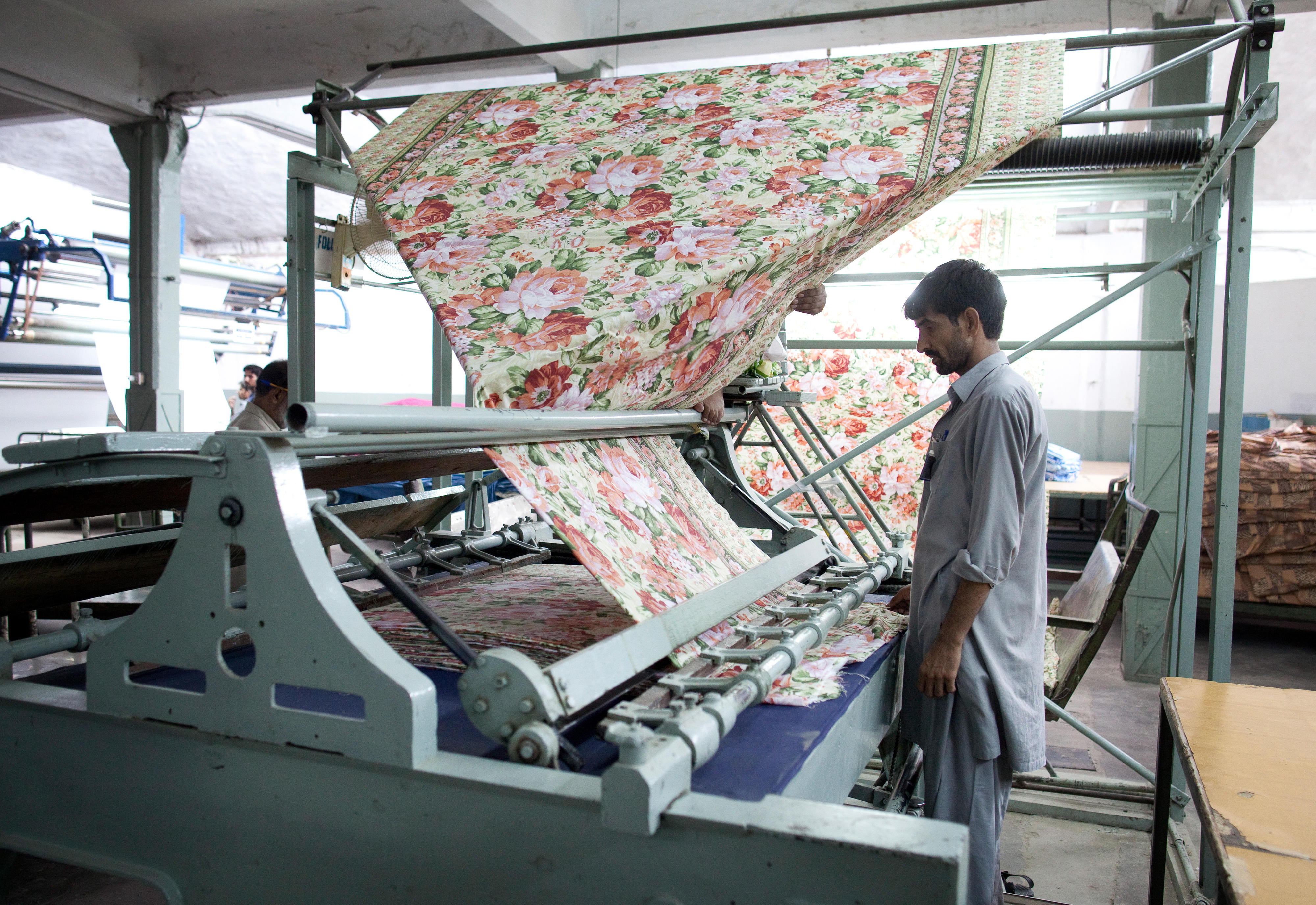Textile factory in Faisalabad, Pakistan
Copyright© Thomas Koehler/photothek.net
Core area “Sustainable economic development, training and employment” Vocational education and job creation
Germany is assisting Pakistan in seizing the development opportunities arising from its inclusion in the European Union's Generalised Scheme of Preferences Plus (GSP+) (see also Economic situation). This includes alignment with the requirements of the European Green Deal and of German and European due diligence legislation.
Labour, social and environmental standards in the textile industry
There is a special focus on the development of the textile sector, which is Pakistan's strongest export industry. Most textiles are produced in small and medium-sized enterprises operating in the informal sector. Significant weaknesses still persist in these companies with regard to social protection, occupational health and safety, and environmental protection.
Since 2014, the BMZ has assisted nearly 150 textile and fashion companies in complying with social and environmental standards. Support is being provided, for example, for including workers in public social insurance, improving occupational health and safety, using chemicals that are more environmentally friendly, providing workers with safe drinking water and subsidised meals, setting up separate washrooms and toilets for women, and establishing company daycare centres for children. In the period since 2021 alone, working conditions for more than 73,000 workers have been improved, and about 5,000 additional jobs have been created.
Vocational education
In cooperation with the European Union, Germany is using its development cooperation to assist Pakistan in fundamentally reforming its vocational training system, with a view to giving more young people training for the formal labour market and improving the quality of training.
On behalf of the BMZ, GIZ has engaged in cooperation with over 60 vocational training facilities since 2017. The facilities have concluded agreements with several hundred companies and industry federations in order to make it possible for trainees to get practical training at businesses. Over 70 curricula have been developed to this end. Moreover, five centres of excellence have been set up with German support. Between 2017 and 2022, over 150,000 women and men were trained in a number of occupations that are in demand in the private sector.
Furthermore, the BMZ is funding the establishment of three renewable energy hubs at existing vocational schools. The hubs will give trainees a chance to acquire skills and knowledge on photovoltaics and hydropower. These activities are thus directly related to the core area of climate and energy.
Financial system development
The share of people in Pakistan's adult population who have their own bank account is very small, and only a fraction of the people have ever taken out an “official” loan from a bank. For women, rates are even lower than for men. The lack of access to financial services hampers the economic development of Pakistan's many small and medium-sized enterprises. That is why Pakistan-German Financial Cooperation focuses on providing capital in the microfinance sector.
On behalf of the BMZ, KfW Development Bank has acquired shares in the NRSP Microfinance Bank, one of Pakistan's leading microfinance institutions. It provides its clients with lending and savings products. KfW is also supporting the newly established Pakistan Microfinance Investment Company in refinancing small and medium-sized microfinance institutions in order to enable them to broaden their range of financial products. The main target groups of these efforts are women and people in rural areas.
Together with the Aga Khan Foundation, KfW Development Bank is also assisting start-ups and supporting the establishment of business networks.
As at: 07/08/2024
